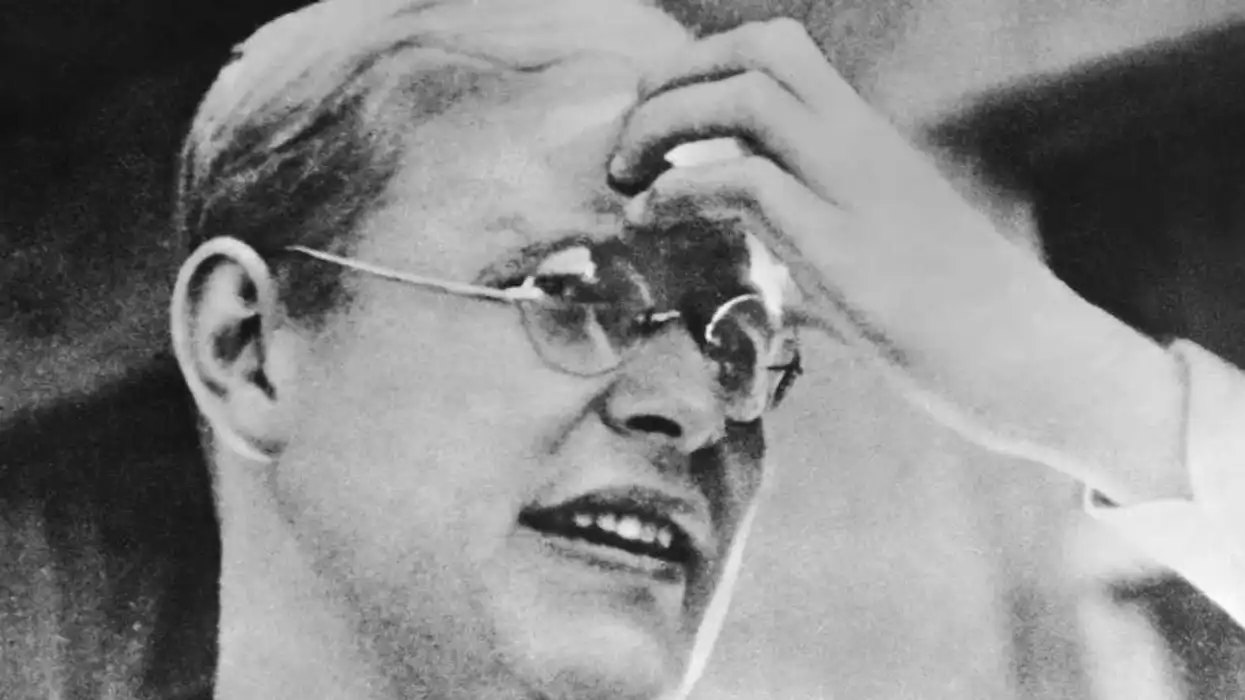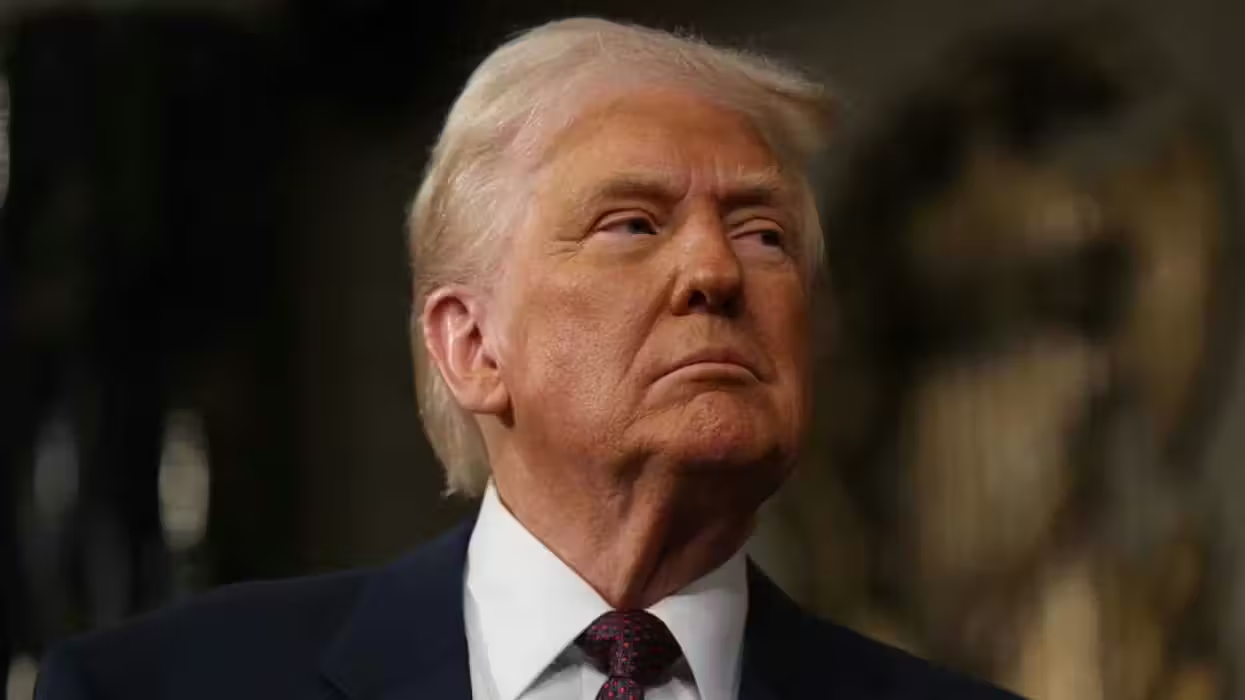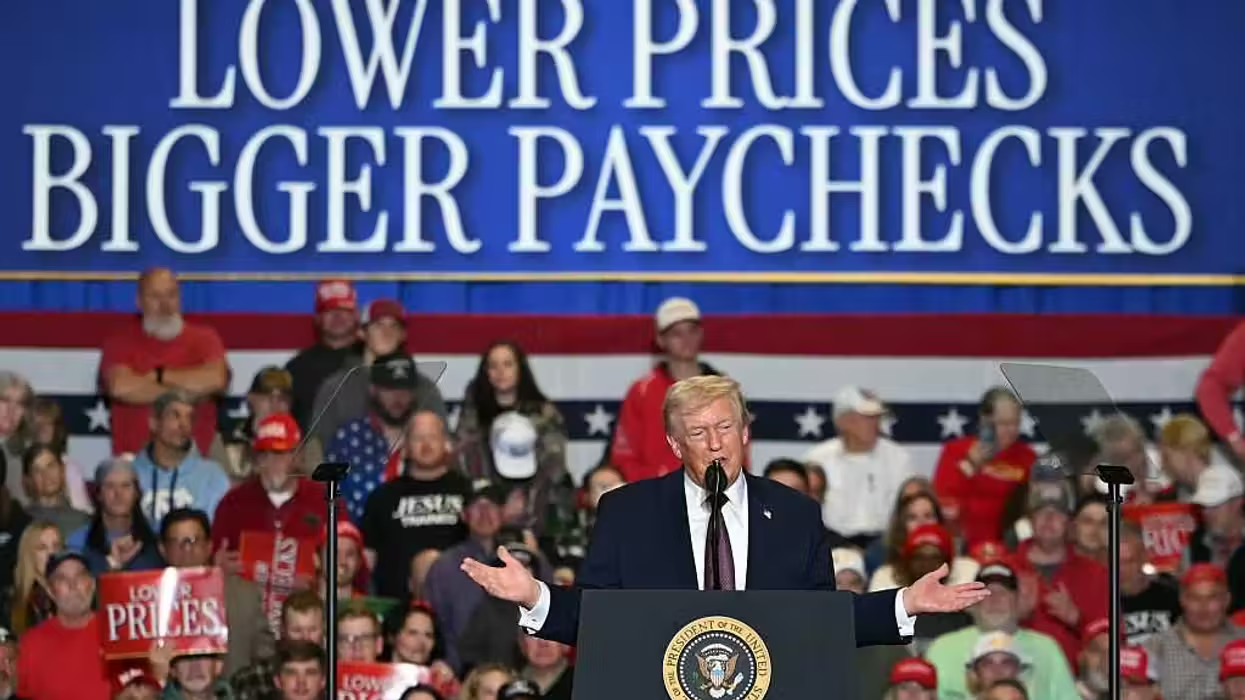The House passed legislation on Wednesday that provides billions of dollars in new spending to address the Department of Veterans Affairs health care scandal.
But the bill allows VA officials involved in denying veterans access to health care escape some of the harsher penalties that Congress has considered over the last few weeks.
 Senate Veterans’ Affairs Committee Chairman Sen. Bernie Sanders, I-Vt., right, and House Veterans’ Affairs Committee Chairman Rep. Jeff Miller, R-Fla., negotiated a final VA bill over the weekend, which the House passed on Wednesday. (AP Photo/J. Scott Applewhite)
Senate Veterans’ Affairs Committee Chairman Sen. Bernie Sanders, I-Vt., right, and House Veterans’ Affairs Committee Chairman Rep. Jeff Miller, R-Fla., negotiated a final VA bill over the weekend, which the House passed on Wednesday. (AP Photo/J. Scott Applewhite)
Members approved the bill in an easy 420-5 vote — all five "no" votes came from Republicans. The Senate is expected to consider the bill later this week.
The legislation is the result of a weekend compromise between House Republicans and Senate Democrats aimed at ensuring that veterans can quickly receive care outside the VA system if necessary, and increasing the chances of care within the system by hiring new doctors and nurses.
The legislation calls for another $14.4 billion to be spent on these and other priorities over the next decade. About $10 billion of that money will come from new government borrowing, but even Republicans agreed that new debt is an acceptable way to pay for veterans' access to health care services.
Most of that spending will take place over the next few years, while the $4.4 billion in spending offsets won't start kicking in until several years from now.
Since the VA scandal broke a few months ago, members of both parties have been outraged at the conduct of VA employees who manipulated veterans' wait time data, and covered up those efforts. Many were also angry that senior VA officials continued to receive bonuses even though they were failing in their mission to ensure prompt health services for veterans.
That outrage led the House to vote unanimously in June to prevent the VA from awarding any bonuses for VA employees for the next two years.
But despite that vote, the final VA bill would only cap VA bonuses at $360 million per year for the next ten years — that's just a 10 percent reduction from the $400 million the VA typically awards. The bill would authorize the VA to spend as much as $3.6 billion in bonuses over the next decade, despite ongoing complaints about the performance of VA officials around the country.
The House-passed version of the VA bill would have allowed the VA secretary to immediately fire any VA employees for misconduct. But that language was also weakened, as the final bill includes a version of the Senate proposal that would give fired or disciplined VA workers a week to appeal these decisions, and a 21-day appeal process.
While the final bill falls short of the tougher disciplinary actions proposed by the House, supporters of the compromise stressed that the bill represents a first step toward reforming a department that most agree is completely broken.
"The conference report we're considering this afternoon is the first step, the first step toward alleviating their pain and paving the way for the failing VA health care system to experience much-needed structural and cultural reform," House Veterans' Affairs Committee Chairman Jeff Miller (R-Fla.) said before the final vote.
Even Concerned Veterans for America, a group that called for passage of the tougher House language on VA employees, said it supports the compromise as a first step.
"For the first time since the 1980s, real civil service reform will ensure poorly performing VA executives can be promptly fired," that group said.

 Senate Veterans’ Affairs Committee Chairman Sen. Bernie Sanders, I-Vt., right, and House Veterans’ Affairs Committee Chairman Rep. Jeff Miller, R-Fla., negotiated a final VA bill over the weekend, which the House passed on Wednesday. (AP Photo/J. Scott Applewhite)
Senate Veterans’ Affairs Committee Chairman Sen. Bernie Sanders, I-Vt., right, and House Veterans’ Affairs Committee Chairman Rep. Jeff Miller, R-Fla., negotiated a final VA bill over the weekend, which the House passed on Wednesday. (AP Photo/J. Scott Applewhite)






